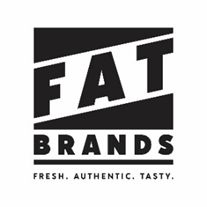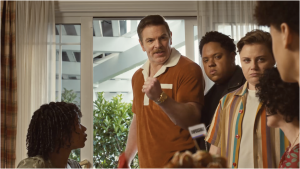 Andrew A. Wiederhorn, the former CEO and current controlling shareholder of the publicly traded Fat Brands Inc., has been indicted on federal charges alleging a scheme to conceal $47 million in distributions he received in the form of shareholder loans from the IRS, FAT’s minority shareholders, and the broader investing public, the Justice Department announced today, May 10.
Andrew A. Wiederhorn, the former CEO and current controlling shareholder of the publicly traded Fat Brands Inc., has been indicted on federal charges alleging a scheme to conceal $47 million in distributions he received in the form of shareholder loans from the IRS, FAT’s minority shareholders, and the broader investing public, the Justice Department announced today, May 10.
According to the indictment returned Thursday by a federal grand jury, Wiederhorn – assisted by FAT’s chief financial officer and his outside accountant at advisory firm Andersen – concealed millions of dollars in reportable compensation and taxable income and evaded the payment of millions of dollars in taxes, while causing FAT itself to violate the Sarbanes-Oxley Act’s prohibition on direct and indirect extensions of credit to public-company CEOs in the form of a personal loan.
“This defendant, the former CEO of a publicly traded company, is alleged to have engaged in a long-running scheme to defraud investors and the United States Treasury to the tune of millions of dollars,” said United States Attorney Martin Estrada. “Instead of looking out for shareholders, the defendant allegedly treated the company as his personal slush fund, in violation of federal law. The Corporate and Securities Fraud Strike Force of my office focuses on rooting out corporate malfeasance by corporate insiders, and we will continue to protect the public by bringing these important prosecutions.”
“The indictment alleges that with the assistance of his co-defendants, Mr. Wiederhorn repeatedly evaded his taxes and the law as he engaged in a cover-up to avoid being accountable to shareholders,” said Krysti Hawkins, the acting assistant director in charge of the FBI’s Los Angeles Field Office. “Rather than continuing to fund his lavish lifestyle, Mr. Wiederhorn will face serious consequences for his alleged criminal actions.”
“The allegations contained in the indictment against Mr. Wiederhorn show that he is a serial tax cheat. His actions over decades hurt not only his company and its shareholders, but also every American taxpayer,” said Special Agent in Charge Tyler Hatcher, IRS Criminal Investigation, Los Angeles Field Office. “Failing to honestly and accurately report income shortchanges Americans, and places undue strain on honest taxpayers. CI is committed to investigating this sort of criminal behavior to ensure accountability and equity in the tax system.”
Brian Hennigan of Hueston Hennigan LLP, counsel for FAT Brands Inc., issued the following statement:
“Today FAT Brands was informed that it has been indicted on two violations of SOX 402 for arranging approximately $2.65 million in loans to Andy Wiederhorn.
“These charges are unprecedented, unwarranted, unsubstantiated and unjust. They are based on conduct that ended over three years ago and ignore the Company’s cooperation with the investigation.
“FAT Brands will take all necessary action to defend itself, while seeking a just resolution to these charges. Since becoming a public company, FAT Brands has grown to at a remarkable pace to encompass 18 brands with $2.5 billion in global sales and 2,300 locations worldwide, benefitting franchisees and investors alike. The Company will continue executing on its operating plans and growth strategy.”
The defendants charged in the indictment are:
- Wiederhorn, of Beverly Hills;
- William J. Amon, of Los Angeles, a certified public accountant, attorney, and one-time managing director of Andersen’s Los Angeles Office, who provided tax-advisory services to Wiederhorn, FAT, and FAT’s former affiliate, Fog Cutter Capital Corporation (FOG);
- Rebecca D. Hershinger, a Los Angeles-area resident who formerly served as FAT’s CFO and, in that role, certified FAT’s public filings; and
- Fat Brands Inc., a publicly traded global franchising company based in Beverly Hills that acquired and developed casual-dining restaurant concepts, including Fatburger, Johnny Rockets, Hurricane Grill and Wings, Yalla Mediterranean, and Ponderosa and Bonanza Steakhouses.
Wiederhorn is expected to be arraigned this afternoon in United States District Court in downtown Los Angeles. The remaining defendants are expected to be arraigned during the first week of June.
According to the indictment, Wiederhorn began disguising distributions to himself in the form of shareholder loans approximately 30 years ago, when he served as CEO of another company, Wilshire Credit Corporation. After forgiving himself some $65 million in putative debts owed to WCC, Wiederhorn resolved a federal grand jury investigation into that and related conduct by pleading guilty in 2004 in the District of Oregon to the payment of illegal gratuities and filing a false federal tax return. FOG and its affiliates are successor corporate entities to WCC and its affiliates.
From at least 2006 through 2021, Wiederhorn was the subject of efforts by the IRS to collect personal income tax and trust fund taxes he owed personally and as a responsible party and guarantor for entities, including FOG, the indictment states. The IRS efforts included levies and liens on Wiederhorn’s accounts and assets due to outstanding taxes he owed. The IRS, beginning in 2016, assessed Wiederhorn penalties for FOG’s failure to pay trust fund taxes and failure to establish a payment plan. By March 2021, Wiederhorn’s unpaid personal income tax liability to the IRS totaled approximately $7,743,952, inclusive of statutory interest and penalties, according to the indictment.
Beginning no later than 2010 and continuing through early 2021, Wiederhorn allegedly caused employees of FAT and FOG to compensate him by distributing to him approximately $47 million for his personal use and benefit. Wiederhorn, Amon, Hershinger and others miscategorized these distributions as “shareholder loans” and failed to disclose as reportable compensation to the IRS, SEC and the broader investing public, the indictment alleges.
Neither FAT nor FOG required Wiederhorn to post collateral, make interest payments or observe any of the other commercial requirements and realities of true loans, according to the indictment, which adds that Wiederhorn generally determined for himself the amount, timing and form of both extension and forgiveness of these “loans” without informing the directors of either FAT or FOG.
“After defendant FAT became an issuer of securities through its IPO [initial public offering], defendant Wiederhorn caused millions of dollars from defendant FAT’s accounts to be disbursed to defendant Wiederhorn and his family members for their personal benefit,” according to the indictment. “These disbursements were used to fund the purchase of private-jet travel, vacations, a Rolls Royce Phantom, other luxury automobiles, jewelry, and a piano.”
The indictment goes on to outline several transfers of hundreds of thousands of dollars that Wiederhorn caused others at FAT to make directly from FAT accounts to pay Wiederhorn’s personal American Express credit-card debts.
“Wiederhorn, posing as both ‘lender’ and ‘borrower,’ caused defendant FAT and FOG to extend to him and then ‘forgive’ tens of millions of dollars in distributions made in the fraudulent form of loans – all while paying no income tax on these distributions and, in fact, using them to generate net operating losses to provide defendant FAT with financially beneficial tax treatment,” the indictment alleges.
Although FAT publicly claimed that it was “cooperating with the government” in connection with this investigation, after members of FAT’s Board communicated with the government, Wiederhorn removed every director other than himself in March 2023 and reconstituted FAT’s Board with a majority of non-independent directors under his control, according to the indictment.
Wiederhorn is charged with one count of endeavoring to obstruct the administration of the Internal Revenue Code, six counts of tax evasion, and one count of false statements and omission of material facts in statements to accountants in connection with audits and reviews.
Both Wiederhorn and Hershinger are charged with four counts of wire fraud, two counts of false statements and omission of material facts in statements to accountants in connection with audits and reviews, and one count of certifying faulty financial reports.
Wiederhorn, Hershinger and FAT are charged with two counts of extension and maintenance of credit in the form of personal loan from issuer to executive officer.
Hershinger is also charged with one count of making false statements to federal investigators, including, among things, denying that company funds were being used to pay Wiederhorn’s personal American Express bill.
Amon is charged with four counts of aiding and assisting the filing of false tax returns.
Any investors who believe they were victims of the crimes alleged in the indictment are encouraged to go to https://www.justice.gov/usao-cdca/united-states-v-andrew-wiederhorn-william-j-amon-rebecca-d-hershinger-and-fat-brands-inc for further information and updates regarding this matter.
Wiederhorn has also been charged in a separate indictment for illegally possessing a firearm and ammunition after being convicted of a felony.
An indictment is merely an allegation, and the defendants are presumed innocent unless and until proven guilty beyond a reasonable doubt in a court of law.
The FBI and IRS Criminal Investigation are investigating this matter.
Separately, the U.S. Securities and Exchange Commission has also filed a civil enforcement action against Wiederhorn, Hershinger, FAT, and another FAT executive.
This case is being prosecuted by Assistant United States Attorneys Adam P. Schleifer of the Corporate and Securities Fraud Strike Force and Kevin B. Reidy of the Major Frauds Section.
For more news of interest to the foodservice industry, subscribe to Gourmet News.











